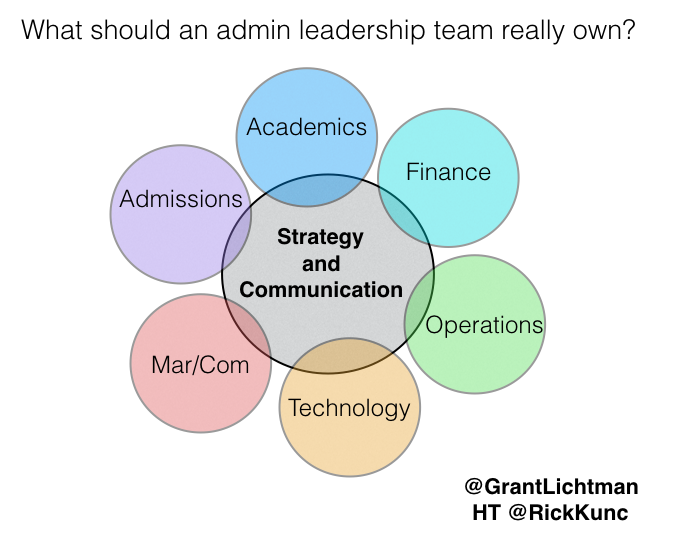If we always think within the frame of the known, we never get outside the frame. This holds for classrooms as well as organizations. Teachers, don’t stop reading just because the word ‘strategy’ appears; you are strategic leaders!
I was editing a chapter for my book and wanted to share this bit, prompted by school strategy consultant Kevin Ruth. Kevin believes, as I do, that most school strategic plans look and sound the same because “the overwhelming majority followed some sort of template: ‘let’s restate our mission, principles, a brief history, and our philosophy, and follow up that section with a verbose section of ‘strategies’, ‘goals,’ or ‘objectives.’ Template planning does one thing really well, however: it produces comprehensive and highly predictable ‘to-do lists’. True innovation is rarely found there.”
Ruth cites Richard Rumelt in his book, Good Strategy, Bad Strategy, saying that we should not reduce strategic thinking to an exercise in deductive reasoning. “The problem with treating strategy as a [deductive] exercise is that systems of deduction and computation do not produce new interesting ideas, no matter how hard one winds the crank. […] Treating strategy like a problem in deduction assumes that anything worth knowing is already known–that only computation is required. The presumption that all important knowledge is already known, or available through consultation with authorities, deadens innovation.” (Good Strategy, Bad Strategy, 244).
I want our students to be ‘creational thinkers’, and that means we need to till the soil in ways that allows them to plant seeds that have never been grown before. What if ‘original thoughts’ had a place on every assessment protocol?




Leave A Comment